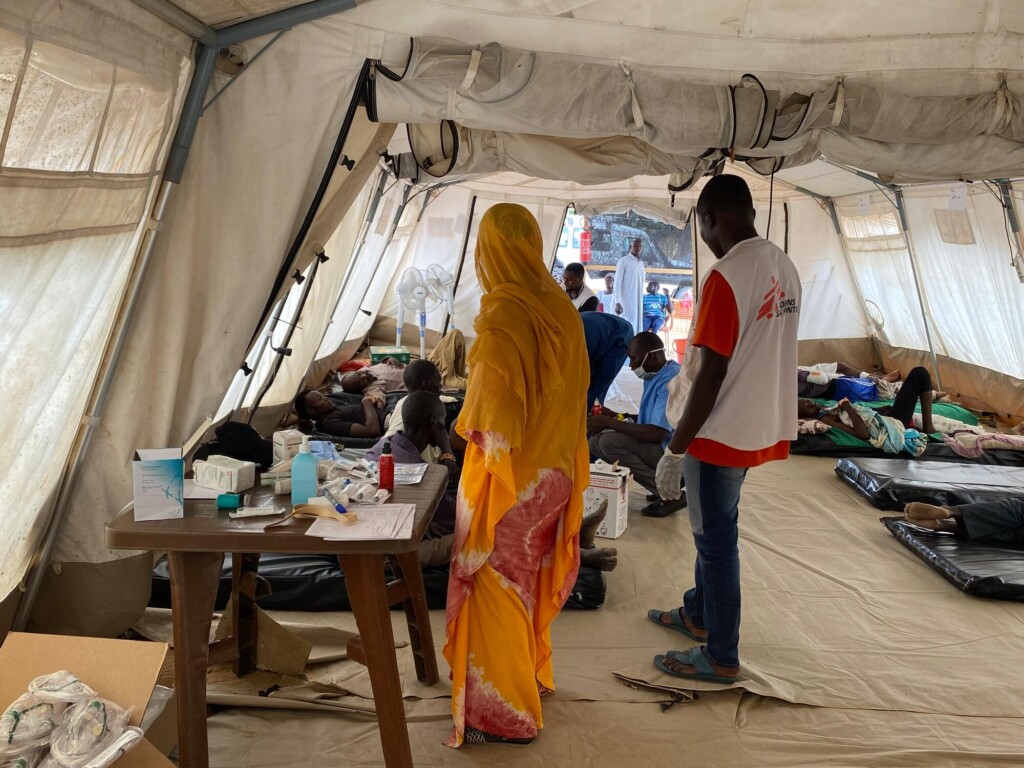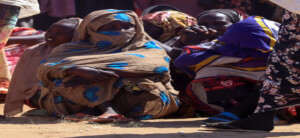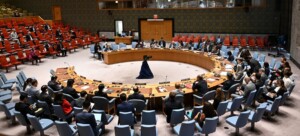Sudanese refugees in Chad face health and hunger crisis

The emergency surgical wards set up in Adré hospital by MSF teams to cope with influx of war wounded from Sudan. Chad, June 2023 (Johnny Vianney Bissakonou / MSF)
ADRÉ / EL FASHER –
The humanitarian crisis at the Chadian border town of Adré, has left Darfuri refugees grappling with widespread illness and malnutrition. Cases of diarrhoea and malnourishment, particularly among children, have been reported by an initiative led by Sudanese refugee doctors. The health system in Darfur is rapidly deteriorating.
Dr Mawaheb Younes, a specialist in obstetrics and gynaecology and a key member of the initiative, has highlighted a number of contributing factors to the health crisis, which include the lack of food, deteriorating environmental conditions, and inadequate access to proper sanitation facilities.
To address the scarcity of healthcare facilities, 22 field clinics have been established in four new refugee reception camps in Adré. Some of these clinics operate under Doctors Without Borders/Médecins Sans Frontières (MSF), while others are run by local charities and Sudanese refugee doctors. The need for these clinics arose due to the inability of Adré Hospital to effectively accommodate all cases, as Dr Younes explained.
Although the field clinics primarily focus on treating injuries and fractures, they face challenges in meeting the needs of patients with chronic illnesses. Despite the ongoing efforts, Sudanese refugees continue to arrive in Adré from the states of South and North Darfur, with the clinics having already performed about 20 operations to treat people with gunshot-related fractures in recent weeks. Some critical cases have been transferred to hospitals in Abéché and N’Djamena.
Beyond the pressing physical health challenges, the refugees also grapple with profound psychological impacts resulting from experiences like rape, physical assault, and other violations. Despite surveys conducted to assess their needs, the tangible psychological support for the refugees remains insufficient.
‘Alarming deterioration’
The federal Ministry of Health recognised the alarming deterioration of the health system in the Darfur region, particularly in Central and West Darfur.
Minister of Health Haisam Mohamed met with Darfur regional Health Minister Babiker Mohamedein on Tuesday, to discuss the challenges of delivering medical supplies to the region.
The meeting emphasised the importance of joint coordination between the government and international, national, and UN organisations to ensure effective supply deliveries through collaborative mechanisms. Urgent measures were recommended, including support for the internal health system in the region and the expedited provision of supplies before the rainy season.
Mohamedein expressed concerns over the region’s extremely complex health situation. He pointed out that the security conditions have hindered the arrival of medical supplies and personnel, leading to a decline in health services.
The Ministry of Health and Social Welfare of the Darfur region has acted by initiating the distribution of medicine and food aids to various health centres and hospitals in different areas of North Darfur. An inspection tour led by the Governor of Darfur Minni Minawi revealed the dire conditions faced by North Darfur residents.
As part of the first aid measures, the ministry distributed food aids, including rice, flour, oil, and sugar, with plans to extend aid distribution to Darfur. The ministry has engaged with numerous humanitarian organisations to promptly address the plight of the displaced and refugees, particularly those seeking refuge in the area of Adré.











 and then
and then